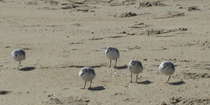In his book, “Dictionary of Biblical Theology,” Xavier Leon-Dufour points out that in the OT, the Israelite understanding of divine kingship differed from that of other ancient Eastern kingdoms in an essential way: Yahweh has a covenant with his people. He desires his reign to be recognized by obedience to the Law. His reign is of the heart, a moral code, not a political one. (p 292)
In today’s gospel, after his baptism, Jesus has moved to Capernaum, on the Sea of Galliee and beings his public ministry by declaring the “Kingdom of heaven is at hand.” Then he began teaching in the synagogues, proclaiming the gospel of the Kingdom, and curing people. A sign, it seems, that the kingdom had indeed come in the person of Jesus. It has broken into history, into time and space.

 Photo: Kathryn Holt “A word found me,” a friend told me after Mass yesterday. “Reveal.”
Photo: Kathryn Holt “A word found me,” a friend told me after Mass yesterday. “Reveal.”  Durate: Acrylic on Canvas His betrothed was pregnant. Not his child. Still, he loved her and wanted to spare her the shame and consequences of her condition. What to do? How to love her in such impossible circumstances. And his life? What next for him if what he had most desired and planned was no longer possible?
Durate: Acrylic on Canvas His betrothed was pregnant. Not his child. Still, he loved her and wanted to spare her the shame and consequences of her condition. What to do? How to love her in such impossible circumstances. And his life? What next for him if what he had most desired and planned was no longer possible? PHOTO: Mary van Balen Preparing to write my monthly column, I had read today’s readings last week. As I sat in the pews at church and listened to them again, I couldn’t help but be reminded of the campaigns that ended with re-electing President Obama last Tuesday. I know Jesus was not talking about election funding and stretching the story of the widow’s mite to do that may draw criticism. So, I want to be clear that I am not attempting an interpretation of Scripture here. Just sharing what came to mind.
PHOTO: Mary van Balen Preparing to write my monthly column, I had read today’s readings last week. As I sat in the pews at church and listened to them again, I couldn’t help but be reminded of the campaigns that ended with re-electing President Obama last Tuesday. I know Jesus was not talking about election funding and stretching the story of the widow’s mite to do that may draw criticism. So, I want to be clear that I am not attempting an interpretation of Scripture here. Just sharing what came to mind. PHOTO: Mary van Balen I was able to crawl into bed with a grateful heart much earlier than expected. The vote count did not extend into today, or as some feared, even weeks ahead. Romney delivered a gracious concession speech, Obama a rousing acceptance speech. I know rough months loom ahead. Some Republicans are already placing all the demand for concessions on economy at the President’s feet. Doesn’t bode well for compromise or an end to gridlock. Still, Obama is in for four more years, and that in itself is encouraging to me.
PHOTO: Mary van Balen I was able to crawl into bed with a grateful heart much earlier than expected. The vote count did not extend into today, or as some feared, even weeks ahead. Romney delivered a gracious concession speech, Obama a rousing acceptance speech. I know rough months loom ahead. Some Republicans are already placing all the demand for concessions on economy at the President’s feet. Doesn’t bode well for compromise or an end to gridlock. Still, Obama is in for four more years, and that in itself is encouraging to me. PHOTO: Mary van Balen, View: Afton VA My week-long vacation began with a foggy drive through West Virginia and Virginia that necessitated an unplanned overnight in Lexington, VA. The stay was nice, though, and gave us a chance to slow down. One shouldn’t have to hurry into a “vacation.” Strictly speaking, I was the one headed for weeks vacation. My daughter would take off a few days to spend with me at the beach, but our friend was headed back to work after attending a wedding. No matter. I think we all enjoyed a good night’s sleep and arriving in Williamsburg in daylight.
PHOTO: Mary van Balen, View: Afton VA My week-long vacation began with a foggy drive through West Virginia and Virginia that necessitated an unplanned overnight in Lexington, VA. The stay was nice, though, and gave us a chance to slow down. One shouldn’t have to hurry into a “vacation.” Strictly speaking, I was the one headed for weeks vacation. My daughter would take off a few days to spend with me at the beach, but our friend was headed back to work after attending a wedding. No matter. I think we all enjoyed a good night’s sleep and arriving in Williamsburg in daylight. 
 PHOTO: Mary van Balen Kill Devil Hills, NC Time on the beach is always a grace. This week my daughter and I spent three days there, walking, looking for shells, watching birds, listening to waves crashing and tides going out and coming in. We splashed through cold water and waded in tide pools, remembering ocean vacations with my parents. Mom loved the tide pools and sat in her beach chair right in the middle. She had a good eye for sharks’ teeth when walking along the oceans edge. With a sieve, she found some big ones in the tide pools.
PHOTO: Mary van Balen Kill Devil Hills, NC Time on the beach is always a grace. This week my daughter and I spent three days there, walking, looking for shells, watching birds, listening to waves crashing and tides going out and coming in. We splashed through cold water and waded in tide pools, remembering ocean vacations with my parents. Mom loved the tide pools and sat in her beach chair right in the middle. She had a good eye for sharks’ teeth when walking along the oceans edge. With a sieve, she found some big ones in the tide pools. Kathryn and I enjoyed watching the sanderlings scurrying up to the water’s edge looking for food, and hurrying back up the beach when the waves flowed in. Some of the tiny birds stood on one leg…and as Kathryn noticed, hopped on one foot as often as running on two.
Kathryn and I enjoyed watching the sanderlings scurrying up to the water’s edge looking for food, and hurrying back up the beach when the waves flowed in. Some of the tiny birds stood on one leg…and as Kathryn noticed, hopped on one foot as often as running on two. Sometimes we talked. Sometimes we just walked near each other, eyes combing the sand for shells or sea glass. Nothing in particular. Whatever the sea offers that day, that moment.
Sometimes we talked. Sometimes we just walked near each other, eyes combing the sand for shells or sea glass. Nothing in particular. Whatever the sea offers that day, that moment. 

 Over 8,200 people rose to their feet and applauded the Dalai Lama as he walked onto the platform. They cheered when he donned the William & Mary visor presented to him by the president of the student assembly. Then, a hush as the audience hung on each word. The Dalai Lama addressed us as brothers and sisters and emphasized our common humanity that is often obscured when we focus on what he called “secondary level of differences” like religion and race. “If I emphasis ‘I am Tibetan. I am Buddhist. That thinking, that attitude, immediately create barrier.”
Over 8,200 people rose to their feet and applauded the Dalai Lama as he walked onto the platform. They cheered when he donned the William & Mary visor presented to him by the president of the student assembly. Then, a hush as the audience hung on each word. The Dalai Lama addressed us as brothers and sisters and emphasized our common humanity that is often obscured when we focus on what he called “secondary level of differences” like religion and race. “If I emphasis ‘I am Tibetan. I am Buddhist. That thinking, that attitude, immediately create barrier.” On today’s
On today’s  “I think you have a cricket in your basement,” my sister said after spending the night in “the guest room,” a queen bed in the, thankfully dry, basement.
“I think you have a cricket in your basement,” my sister said after spending the night in “the guest room,” a queen bed in the, thankfully dry, basement.